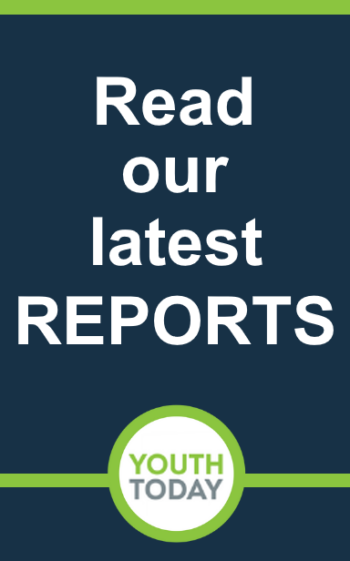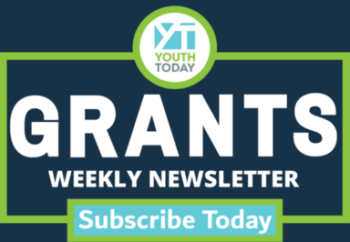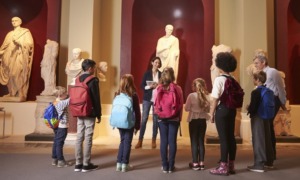The first executive director of the Robert Bowne Foundation, Dianne Kangisser, built a team to assist her as a new grantmaker.
“I kept learning and growing and getting help from people, and I found my skill, which was not so much teaching as management and program development…
“[As Executive Director of RBF] I realized I really liked working as a team. So I turned to the only people I knew who knew anything about literacy, and they [were at the Literacy Assistance Center and the Institute for Literacy Studies at Lehman College]. I got to know the two women who were Co-Directors of Brooklyn-In-Touch because their job was to help programs with fund development — and they’d research small foundations and called me at the Robert Bowne Foundation…
“So that’s how we formed the team of management plus education. The youth development piece was added later on…
“There was not a field when I started. I have to say that we — the Board and I and all of the people we worked with — were instrumental in creating the field. The first part we played was acknowledging the value of the role community agencies play in education…The next step was to ask: How could we make it better? How can we get stakeholders to see the value and to want to invest in them?
“Afterschool was very much a step-child within these agencies. Agencies were focused on things like Senior Centers, advocacy for the community, health care, housing. So many stretched thin CBOs [community-based organizations] were doing other things in the community. They realized kids needed a place to go [after school], but didn’t realize the critical role they could play.”
Dianne Kangisser contracted with Brooklyn-In-Touch (later renamed Non-Profit Connection) to make site visits to RBF grantee organizations and assess their management needs. The following year, the RBF established “Combo TA,” a technical assistance approach to program support that explicitly recognized that good programs must be linked to strong infrastructures in order to survive and thrive. Components of the Combo TA program included:
- Joint site visits by a Brooklyn-In-Touch management consultant and a literacy consultant from either the Literacy Assistance Center or the Institute for Literacy Studies;
- One-on-one consulting/coaching intervention, bringing together a technical assistance (TA) provider and a staff member of the grantee program; and
- TA provider group meetings to share experiences/insights about the grantees.
At times, joint site visits proved difficult to implement. Funder visits that looked beyond the particular funded program were new for some grantees and they did not always feel comfortable exposing management or other difficulties. Moreover, at times logistical snags — such as scheduling problems — slowed arrangements.
Lena Townsend, who became RBF Executive Director after Dianne Kangisser, Anne Lawrence, later RBF Program Officer, and Sara Hill, later Research Officer at the RBF, were members of Dianne Kangisser’s original team of consultants. In a 2012 interview, Townsend recalls her early recognition of grantees’ need for management and capacity-building support.
“I remember something so clearly from the first TA [Technical Assistance] meeting I went to when I was new to everything. I remember [one of the TA providers] talking about her experience. ‘I’m so frustrated. I go in and I ask them for materials and they don’t have them.’ She kept thinking she was doing something wrong. I sat there thinking that she wasn’t doing anything wrong. If they can’t get the materials, they must be doing something wrong. I asked if they had an organizational chart. … She said she goes to this person and they didn’t know who to go to. That’s when I realized that there was a management problem.”
Building on the lessons of its “Combo TA” program, the RBF launched Re-Imagining the Afterschool Program, an initiative specifically designed to provide professional development at the intersection between management and literacy program. Through the initiative, RBF provided funding for two cohorts of grantees, the first in 1995 and the second in 1997. All program cohort activities required the participation of both administrative and program staff members, and included components ranging from professional development workshops to one-on-one mentor support — all aiming to develop a program work plan that covered both literacy and management. In addition, RBF provided one-on-one support from a specially trained evaluator to develop a process for program evaluation.
Program Officer Anne Lawrence reflecting on the Re-Imagining Initiative:
“We managed to create a plan for literacy and management, involving mentors and evaluators. But still, it wasn’t intense enough. We needed more time with someone to develop the literacy component, as well as time focused on management.”
To meet those needs, RBF continued both to assess grantee needs as well as offer management technical assistance. The Non-Profit Connection offered targeted one-on-one consultations on such topics as: cash flow management, budget development, diversifying funding sources, strategic planning, management coaching, and proposal writing.
Holly Delaney Cole of the Community Resource Exchange (CRE) guided the RBF through its first strategic planning process (in 1999). The following year RBF contracted with CRE to provide consulting services to RBF grantees on such topics as: financial management, fundraising planning and strategy, creating work plans, development office audit procedures, and strengthening both capacity and infrastructure.
When many grantees began expressing an interest in additional support, RBF suggested the possibility of afterschool practitioners participating in year-long professional training programs. Between 2000 and 2009, RBF provided scholarship support for interested grantees to attend the Middle Management Program for Youth Service Organizations offered by the Institute for Non-Profit Management (INM) at Columbia University. The course included such topics as: Strategy; Administration; Financial Management; Fund Development; Marketing; and Interpersonal Relations.
Beginning in 2008, CRE also offered support to RBF grantees through its Leadership Caucus, a series of 8-month-long interactive leadership development programs employing hands-on experiences and peer learning aimed at developing more effective leaders.
Lori Roth, the director of the Non-profit Management program noted that collaborating with RBF not only provided leadership training to administrators in community-based programs, but the relationship also provided her with a “thought partner” in improving the Institute’s program:
“Just as Lena [Townsend] and Anne [Lawrence] were resources to grantees, Lena was a resource to me. She [Lena] would brainstorm with me and help me reflect on my practice. “I hear that you would love to go deeper. What does going deeper mean?” As a result of this reflection, Bowne funded an experiment. Some participants wanted additional support after graduation [from the program]. We came up with a way to work in groups as they implemented the Strategic Plans developed in the program.”
After announcing its closing, RBF held focus groups with grantees and RBF TA providers. Based on these focus groups, RBF staff decided to focus the final five years on developing the capacity of their existing grantees. Program Officer Anne Lawrence collaborated with expert consultants to design multi-session, hands-on, management and capacity-building professional development to address specific concerns and questions raised by practitioners.
Such offerings included:
- Fundraising Action-Learning Series conducted by Randall Quan, Community Resource Exchange (October 2011-January 2012 and February-April 2015);
- Board Governance Initiative conducted by Nicole Sebastian, VCG (Volunteer Consulting Group) Governance Matters (2013 and 2014 cohorts); and
- Evaluation Capacity Building Initiative conducted by Kim Sabo Flores, Algorhythm, Inc. (two phases: February-June 2014 and October-July, 2015)
Nicole Sebastian, the VCG professional development provider shared her view of the encompassing role of the Robert Bowne Foundation’s in a May 2014 interview:
“Bowne continues to be at the forefront, whether about literacy or management capacity and board development, even in their deciding to focus exclusively on capacity-building in their last year. Over the years, they have recognized the importance of an organization’s capacity. In addition to their own legacy, they are committed to helping the organizations they support build the infrastructure, at both the program and board level, to continue to do the work that they do…
“I can talk about Bowne’s commitment to governance…They plant seeds and let grantees know this is important and they’re willing to support it…They really serve as a bridge between capacity builders and grantees. They create possibilities.”
LINKS:
- Snapshot: Examples of Management and Capacity Building Professional Development
- Video: Excerpt from the final session of a Robert Bowne Foundation Fundraising Action Learning Series facilitated by Randall Quan of the Community Resource Exchange on April 14, 2015.




















